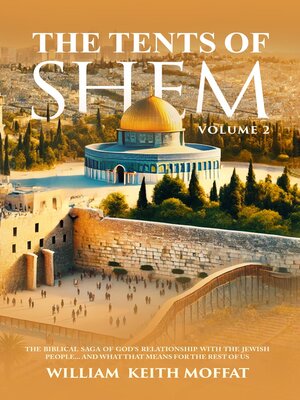The Tents of Shem Volume 2
ebook ∣ The Biblical Saga of God's Relationship with The Jewish People... and What That Means For The Rest Of Us · The Tents of Shem
By William Keith Moffat

Sign up to save your library
With an OverDrive account, you can save your favorite libraries for at-a-glance information about availability. Find out more about OverDrive accounts.
Find this title in Libby, the library reading app by OverDrive.



Search for a digital library with this title
Title found at these libraries:
| Library Name | Distance |
|---|---|
| Loading... |
Can an ancient patriarchal blessing be an important key to understanding the history of redemption? Can the hospitality analogy contained in that old man's utterance explain the unique role that a particular line of his descendants plays in God's plan of salvation throughout time and eternity? The author of The Tents of Shem contends that Noah's simple words are a profound foundational template from God Himself: "Blessed be the LORD, the God of Shem... and may he [Japheth] dwell in the tents of Shem" (Genesis 9:26-27). For the first time in history God identifies with a man-Shem. The particular relationship with God is formalized in unilateral divine covenants with Shem's descendants, Abraham, Isaac, and Jacob. Jacob earns the name Israel and the covenant relationship passes on to all his children, the Jews. And there the covenant ends; no other people on earth have such a covenant relationship with God. Which is appropriate, since the biblical analogy describing that relationship between God and the Jewish nation is a marriage.
The uniqueness of this bond between the Deity and the Jews will be confirmed in, of all places, the New Testament.
This two-volume biblical history and theology of the Jews begins with Shem and ends with the New Jerusalem that will descend to Earth from heaven as described in John's Apocalypse. And into that future Jewish capital the Gentile kings of the earth will bring their wealth, a fitting conclusion to having been invited into the Hebrew nation's covenant blessings.
So why should you read this two-volume work when it is primarily about the Jews (assuming you aren't Jewish)? I mean, after all, where is the self-interest that would motivate you? The answer: The self-interest is that Shem's tents, into which you are invited, are where you will be accepted and blessed by God. The author calls it "Guest Theology".







